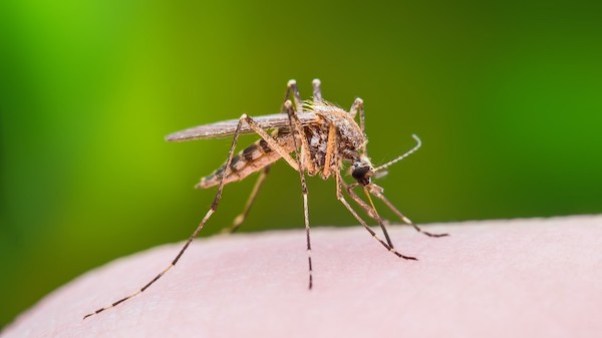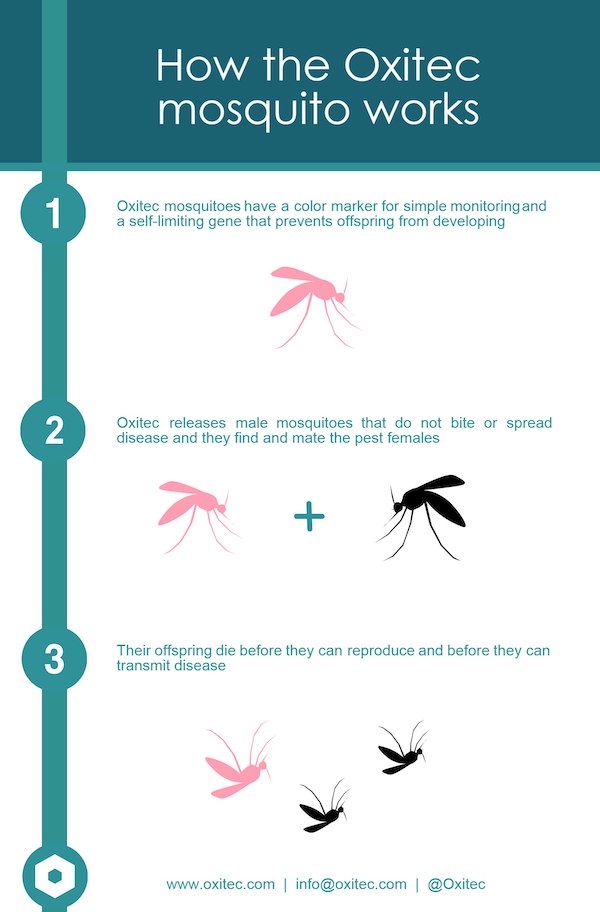Oxitec has spent the last decade trying to release its genetically modified mosquitoes in the U.S., a bid the company finally won last summer. This spring, the bugs will be released in the Florida Keys where it’s hoped they can help reduce the mosquito population and by extension, the spread of potentially deadly diseases that they carry.
Florida’s native mosquitoes have become increasingly resistant to insecticides, leaving locals few tools to control their populations. Mosquitoes are considered the most dangerous insect species on the planet, estimated to be responsible for 1 million deaths every year. WHO estimated that in every 30 seconds a child dies due to malaria and 500 million cases of malaria reported every year. In addition to malaria mosquitoes also spreads dengue fever, yellow fever, chikungunya, encephalitis, and West Nile virus. They can also transmit diseases in animals, including avian malaria.
Oxitec’s OX5034 mosquitoes are male-only, which serves two purposes. First, unlike female mosquitoes, males do not bite which means they are not transmitting diseases. The released mosquitoes are also genetically engineered with what’s called a “self-limiting” gene that makes female offspring dependent on the antibiotic tetracycline. As they can’t get this drug in the wild, the females die soon after hatching. In theory, this will eventually lead to fewer wild females to mate with, meaning fewer mosquitoes with each new generation.
Oxitec plans to release around 750 million GM mosquitoes starting as early as this month. They won’t be dropping fully grown adult insects into the Keys, however. The mosquitoes are distributed while still eggs, which are contained in boxes. The boxes will delivered to homeowners that volunteered to have a box installed on their property. Once placed, water must be added for the eggs to hatch, at which time the males fly off but the females die as the box contains no tetracycline.
Oxitec says it has shown that the approach reduces a targeted mosquito population in trials in both Brazil and the Cayman Islands. Company spokeswoman Meredith Fensom said two years of trials in Brazil reduced local mosquito populations 96%.
Oxitec is also working on adapting its technology to combat fall armyworm, a pest that wipes out an estimated 18 million tons of corn crops every year. The destructive pest can be found in 44 countries across the globe and developed an appetite for at least 80 different crops. They conducted small field trials in Brazil this season and hope to expand those further this year. (Sources: Wired, Genetic Literacy Project, BBC)








